|
1/8/2018 Interview with Lyndsay Hall, Writer, Blogger and Creator of “agorawho?” a mental health Video Blog.photography courtesy of Cassandra Panek Sam and I first met Lyndsay through our Antioch University MFA program in Los Angeles. We were both newbie Marin’s and she a veteran Zephyr (our cohorts arranged by exotic winds). I, Levi, found that both Lyndsay and I had experienced and written about mental health issues fairly extensively. I’m not sure either of us liked writing about it; rather, it was something both of us were more or less compelled to write about as writers who experienced depression and anxiety. I remember one time we went to the Tattle Tale—the closest bar to our Culver City campus and sometime venue of spontaneous late-night karaoke sessions—where we traded information on various medications we were on and how our particular maladies were manifesting themselves in our daily lives. At the time, Lyndsay was mostly writing fiction and I nonfiction, and now she is writing nonfiction and blogging and I have switched to fiction—such is the writing life. (Sam) Lyndsay is an absolute delight, an incredible writer, a caring person, and wonderfully honest. She is a unique person, which of course makes her a fascinating interview. Plus, she's been battle-tested as I have interviewed her once before my social-justice oriented lit mag, immix (see here: http://www.theimmix.com/interviews/2017/5/23/lyndsay-hall-sevilla-writers-house). She is exactly the person that we want to kick off the guest section of the Pup Pup Blog, and she's now honorary Pup numero uno in our book. Writing about mental health is not joke. It's incredibly difficult personally, and it's notoriously frustrating craft-wise, and yet, Lyndsay's final products always impress. She's already a Pushcart-nominated writer, so don't be surprised if during her illustrious career-to-come you see the words Pulitzer associated with her name. Currently, Lyndsay is the creator and writer of a video blog, or “vlog” as the kids are calling it, called “agorawho?” along with the written word blog Sunday Whiskey. She is re-launching with new content on “agorawho?” on January 10, 2018. The mission of which is to, "destigmatize mental illness, and prioritize and make space for mental health." (Newsletter subscribers will receive something in their inboxes on January 3rd.) Here is our interview with Lyndsay along with links to her various creative endeavors. Enjoy! https://www.youtube.com/channel/UC3UqeoR1thCBifpkrQ-rWvg http://www.agorawho.com/ http://www.sundaywhiskey.com/ Why did you decide to start a mental health blog? I'm constantly, consciously and unconsciously, seeking creative projects. For the past year, I’ve sought a multimedia project that was immersive and personal, in the vein of a memoir except not. I first considered a focus on mental health while on a camping trip; a few weeks earlier, I’d (er, maybe drunkenly) purchased a two-person tent, sleeping bag, lantern, and first-aid kit, because I’d always wanted to wake up in a tent and it’d always made me anxious. I’m agoraphobic. Most places besides my bedroom make me anxious. Eventually, I explode sideways and make rash decisions. In this case, I bought a tent. So, I go on this camping trip, and a few months later, I go to the Deep Creek Hot Springs with a couple friends. The day included a five-hour round-trip drive, beginning mid-morning (mornings are always toughest for me); a two-mile round-trip hike; and hours swimming naked in a river. I was away from cell phone reception, public restrooms (unless bushes count), and most importantly, my home. I told my friends about my anxiety. They understood. They understood a year earlier, too, when I’d canceled plans to join them at the hot springs. I realized identifying and talking about anxiety helps. I realized human compassion can and will surprise. And I realized I’m capable of doing things, albeit with some difficulty, more difficulty than many, despite my diagnosis---and most importantly, I learned that that difficulty doesn’t need to be a bad, shameful thing. A week later I woke up with a jingle in my head that went “agorawhat? agorawho?” It sounded like a sassy shaming of my mental illness (but not of myself), and it returned to me some of my power. I called my mother and asked what she thought of creating a blog on mental health (she also has agoraphobia, but is currently symptom-free, so she knows better how to cope). She dug the idea. I bought the domain name. Did you always intend for it to be video? Absolutely not. A few weeks before I decided to create the blog, two men at a French restaurant told me I’d be good for YouTube, and I laughed. It felt too LA to me, which is a stupid as shit (not to mention judgmental) reason not to explore a creative endeavor. Once I knew I was starting “agorawho?” as a blog, I thought back to that comment and considered my love for the internet and video editing. For lack of a better explanation, it made sense. I started writing for the internet back in 2011 with my blog Sunday Whiskey, but my history with the internet dates back to 2000 when I’d built websites and hung around message boards with other nerdy, internet type. I found genuine connections with people I’d otherwise never have met: I had a community outside of and an escape from my middle school and hometown. The two never overlapped. When I launched a blog all those years later, I fell in love with the dialogue it sparked: I emailed with a doctor in London for a few months. A woman recognized me in a nightclub and thanked me for motivating her to move to New York. I discovered early that vulnerability and transparency inspire connection and acceptance. YouTube is a massive, accessible platform. I’m taking advantage. What have you learned about yourself in this process? I’m learning how to manage my expectations, which in many ways means I’m learning to become an artist. I want to create content that’s helpful and worthy of an audience’s time. Like all artists, I want to create work that is important and compelling, and I believe my work is that. But what artists don’t say, or rather, what they do say but we don’t hear, is that an artist’s work does not end once a single piece is complete. You have to keep on, and sometimes that means keeping on to an empty room, simply for the love of it. You show up, and you show up, and you show up countless times before anyone knows your art exists. I’ve also learned I am capable of forgetting to eat and postponing sleep: I often do when I’m editing videos. Also also, I talk with my whole body. What advice would you give people who are wondering if they are dealing with mental health issues? Talk to a professional. Hell, even if you don’t think you’re dealing with a mental illness, talk to a professional. We all have our shit. I worry people don’t seek help because of stigma and shame. Or maybe they’re like me: They don’t think they’re sick enough. I knew I experienced panic attacks almost daily, and eventually, multiple times a day. I knew I self-medicated. I knew for months straight I’d experience drops in my energy and motivation. I researched agoraphobia and depression, and thought, Yes, that’s me, but also, Other people have it worse. Other people need it more. It’s weird, the way we do that: Invalidate our experiences. The world kicks us down enough; we might as well have our own back. So, yeah. Seek professional help. Take care of and prioritize yourself.
Let me explain. The Spoon Theory demonstrates how someone with an often-invisible illness, like depression, like Lupus, expends mental and physical energy throughout the day. The theory goes, a person begins the day with a set number of “spoons” and loses one for each activity performed. One spoon for getting out of bed, one spoon for teeth brushing, and so on. As of this writing, I’m not in a depressive episode. My spoons feel endless: I wash my face before bed, walk my dog without complaint, eat all my meals. I neglect responsibilities out of laziness, hangovers, and lack of sleep. It’s different. When I’m in a depressive episode, each of those responsibilities claims a spoon, and sometimes that which occur later in the day fall by the wayside because, frankly, I just can’t. I’ve no more spoons. I’ve no more energy. Depression often gives the sensation of being physically drained, daily, for weeks and months at a time. Depression often feels as though withering. Washing one’s face loses importance. Talk of mental health has been in the news recently, especially in the case of gun control and sexual predators. What role should mental health play in our nation-wide discussion of gun control? Should Congress allow the CDC to study what affects mental health has on gun violence? I want to say “sure,” because I believe mental health and gun violence and the link between the two is valid and, well, the more you know, right? Ultimately, if the conclusion drawn helps those struggling with their mental health, I’m on board. But! But! I believe it should be studied with the understanding that the two are not mutually exclusive. A “desire to commit murder” or a “disregard for human life” is not a diagnosis in the DSM; violence itself is not a mental illness. Hell, a “desire to commit murder” doesn’t even qualify as an insanity defense in a court of law, and studies of jailed murderers don’t yield a strong link between violence and mental illness, either. Which is to say, targeting the 3-5% of violent, mentally ill persons who shoot others feels futile at best (and like we’re treating the mentally ill as criminals at worst). The stronger link between gun deaths and mental health is suicide: Two-thirds of all gun deaths, in fact. While not all suicides can be prevented, restricting the accessibility of guns has proven to lower the suicide rate. And while we’re at it, if we want to study the most significant and least discussed link between mass murder and mental health, let’s look into the PTSD and additional devastating effects of survivor’s guilt and other aftermath-related trauma. Frankly, I’m the first person to “diagnose” an ex-lover as a sociopath or narcissist because he didn’t reciprocate my feelings or he treated me poorly. Truth is, more likely than not he won’t meet the qualifications. This is to say, I understand the desire to use mental illness as an excuse: it's a neat package, it's diagnosable, and there's hope the behavior can be fixed. Less desirable is this: People have the capacity for evil. The idealist in me wishes this wasn’t so, but alas. Most mental illnesses are nonviolent, and pointing to mental health as an explanation for mass murders feels erasing and demonizing and icky. Do you think mental health has a lot to do with sexual predators, or is it more a socialized thought and lack of education? Or a combination of both? Mental illness does not explain or justify the actions of these men currently being accused of sexual harassment. Sexual predators are born of society. Some studies suggest sexual offenders have a higher rate of mental illness compared with the general society, and those to whom that applies should seek help for their disorders. They should also, independent of that, speak to therapists and female confidants about their gross mistreatment of women, read literature on consent, and take a long, hard look at where their dicks, mouths, and hands have been. A man who sexually assaulted me on a date had been diagnosed with depression. He did not sexually assault me because of his depression. (Depression is nonviolent.) He sexually assaulted me because he had a lousy understanding of consent. This is an important distinction. We have undereducated our boys at the expense of our girls. Again, if we want to study links between sexual predation and mental health, it is best we look at the victims: Victims of rape and sexual assault are at an increased risk for developing depression, PTSD, eating disorders, anxiety, and substance abuse disorders. But to understand the epidemic, we should study the link between sexual predation and masculinity. What advice would you give people who are just now being diagnosed with a mental health issue? Many times, at a low point in my mental health, I’ve crumbled to the floor and screamed, “I’m not okay, I’m not okay.” A few years ago, I learned during these times to whisper to myself, “I’m okay. I’m okay.” So, this isn’t exactly advice but: You’re okay. You're okay. I promise. A few years ago, I learned during these times to whisper to myself, “I’m okay. I’m okay.” So, this isn’t exactly advice but: You’re okay. You're okay. I promise. 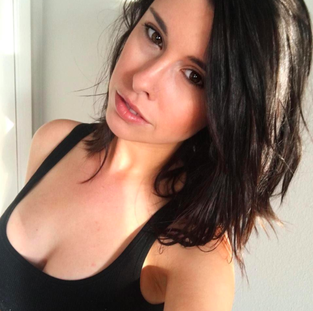 Lyndsay Hall earned her MFA in Creative Writing from Antioch University, and she teaches creative writing to children and teens. Her writing has appeared in online and print journals and magazines, including her mental health blog (obviously) and her personal one, Sunday Whiskey. In 2015 she founded the Los Angeles literary community Sevilla Writers House. In her free time, one might find her dancing in her underwear, serenading her dog, eating with her hands, or all three at once. You can stalk her on Instagram and Twitter @lyndshaaay. Comments are closed.
|
AuthorOur fabulous blog team Archives
June 2024
CategoriesAll 12 Songs Art Art And Athletes Book Review Chorus Blog Date This Book Game Of Narratives Guest Blog Letter From The Editor Lifehacks Movies Of 2019 Music Pup Sounds Smackdown Strive For 55 Summer Playlists |
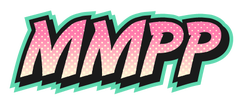
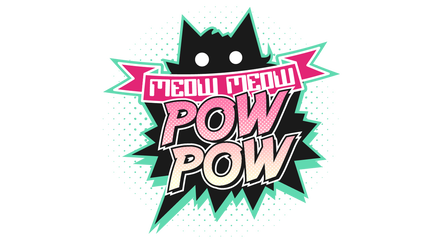
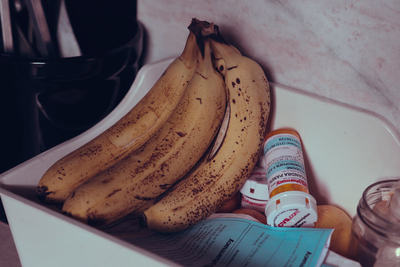
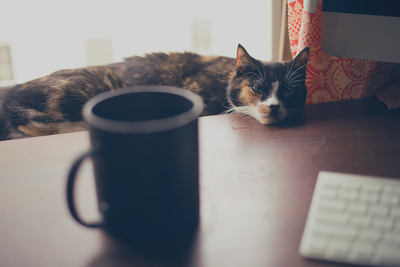
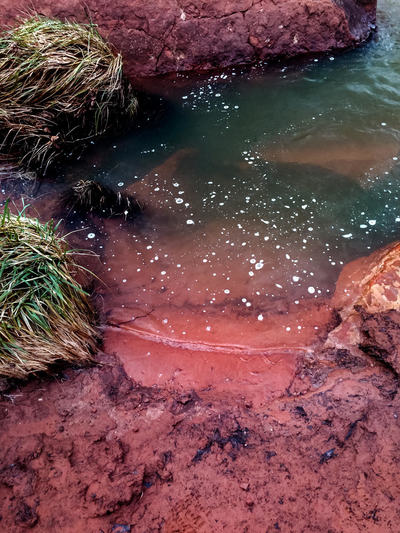
 RSS Feed
RSS Feed